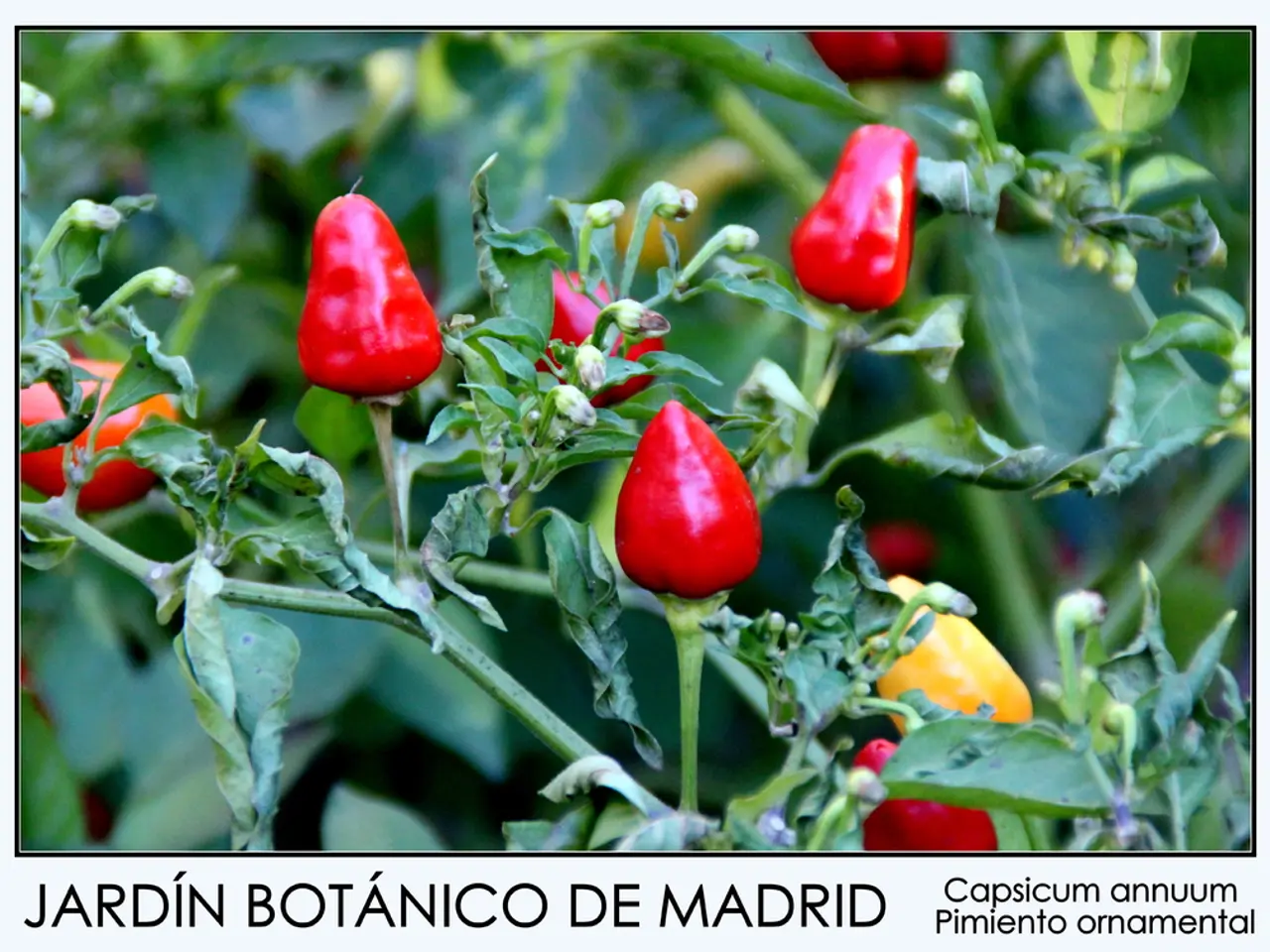Chives Nutritionally, Health Benefits, and Utilization Tips
Chives, a green vegetable with a mild onion-like flavour, are not only a popular garnish but also offer promising anticancer benefits. These benefits are primarily attributed to the rich content of antioxidants, phytochemicals, and bioactive sulphur compounds found in chives and other Allium vegetables such as garlic, onions, and shallots.
Research suggests that these vegetables, including chives, contain organosulfur compounds and other bioactive substances that promote cancer cell death and reduce cancer risk. For instance, extracts from shallots, a close relative to chives, have been found to induce cancer cell death through their phytochemical content [2].
Moreover, these vegetables are a rich source of antioxidants that protect cells from oxidative damage linked to cancer development. Consuming a variety of vegetables, including chives, garlic, onions, and shallots, can provide a range of protective phytochemicals that work together to reduce cancer risk [1].
The American Institute for Cancer Research emphasises the importance of varied vegetable intake for delivering these cancer-fighting compounds, and they have highlighted recipes combining chives and other vegetables for cancer protection [1]. While exact recommended amounts vary, some sources suggest that consuming about half a cup of shallots daily (as a proxy for similar Allium vegetables including chives) can be beneficial [2].
In addition to their anticancer properties, chives are a nutrient-dense food, low in calories but high in beneficial nutrients. They contain a small amount of folate, a water-soluble B vitamin linked to various health conditions such as dementia, Alzheimer's disease, and cardiovascular disease. Chives also provide a modest amount of vitamin C, vitamin A, and vitamin K, as well as choline, an important nutrient that helps maintain the structure of cellular membranes and supports mood, memory, muscle control, and other brain and nervous system functions [1].
It is worth noting that while the evidence supports including chives and related Allium vegetables regularly in your diet as part of a cancer-preventive nutritional strategy, further research is needed to determine the effectiveness and safety of these vegetables for preventing certain health conditions [1][2].
However, eating a large amount of chives may cause stomach upset in some people, and people with allergies or intolerances to onions or other Allium vegetables may also need to avoid chives.
In conclusion, incorporating at least half a cup daily of Allium vegetables such as shallots or chives as part of a varied vegetable-rich diet is advisable. Eating a mix of vegetables ensures a broader range of protective phytochemicals to help reduce cancer risk. Chives, along with other Allium vegetables, offer a tasty and nutritious addition to any meal, contributing to a diet that supports overall health and wellbeing.
References: [1] American Institute for Cancer Research. (n.d.). Allium vegetables. Retrieved from https://www.aicr.org/foods-that-fight-cancer/allium-vegetables.html [2] Hodgson, K. (2015). The anticancer potential of garlic and onions. Retrieved from https://www.ncbi.nlm.nih.gov/pmc/articles/PMC4667077/
- The antioxidants, phytochemicals, and bioactive sulphur compounds in chives exhibit promising anticancer benefits, according to research.
- This research suggests that consuming chives, along with other Allium vegetables like garlic, onions, and shallots, can promote cancer cell death and reduce cancer risk.
- The American Institute for Cancer Research advises consuming a variety of vegetables, including chives, for their cancer-fighting compounds, emphasizing a diverse diet for optimal protection.
- While the recommended amounts may vary, some sources suggest that consuming about half a cup of shallots daily, as a proxy for similar Allium vegetables like chives, can be beneficial.
- In addition to their anticancer properties, chives are a nutrient-dense food, providing a small amount of folate, vitamins C, A, and K, and choline, among other nutrients.
- Further research is needed to determine the effectiveness and safety of chives and related Allium vegetables for preventing certain health conditions, such as dementia, Alzheimer's disease, and cardiovascular disease.
- It is important to note that eating a large amount of chives may cause stomach upset in some people, and those with allergies or intolerances to onions or other Allium vegetables should avoid consuming chives.




